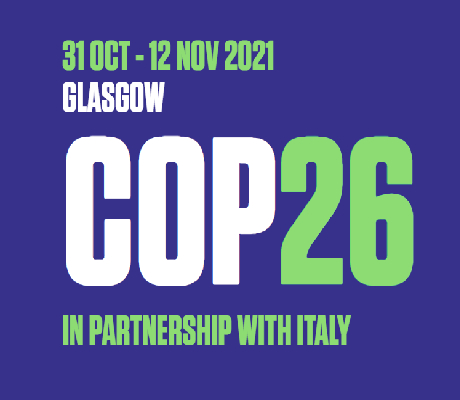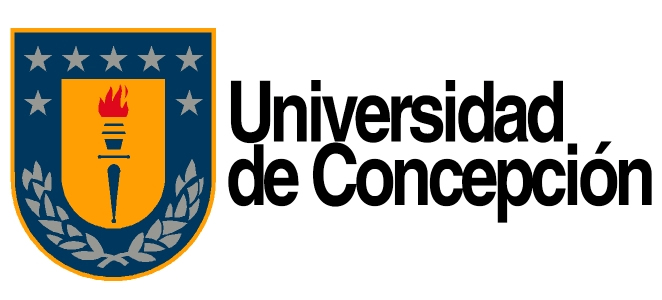
COP26 fell short, but ended with a ray of hope
Fuente: The Conversationalist
There were high hopes for COP26. After years of disappointing climate conferences, many observers hoped that this one, held in Glasgow from October 31-November 13, would end with ambitious pledges and meaningful actions—particularly after both China and the US raised hopes with significant announcements going into the global event. China pledged to become carbon neutral by 2060, while the US pledged to double its financing to poorer countries for combating climate change. However, in the end COP26 fell short. Once again, the decisions taken at the UN Climate Change Conference brought a few advances, but mainly perpetuated the dangerous stagnation that we cannot afford at this critical time of rapid global warming.
I was an observer at COP26 under the auspices of the University of Edinburgh and Nuestra América Verde, a Latin American NGO. Although I studied climate law for both my LLM and now my doctorate, this was my first COP—and a totally novel experience, as can be seen in my description and analysis of events in this article.
Deeply unequal
Equity constitutes an essential element, in both procedural and substantive ambits, for achieving a successful UN climate change conference. Unfortunately, neither the conference organizers nor the state actors who attended COP26 took equity into account. Civil society organizations that came to observe were met with restricted access to negotiations due to a combination of circumstances that included the UK’s onerous and restrictive visa requirements; the high cost of accommodation in Glasgow; and vaccine apartheid. The absence of thousands of observers and climate activists from poorer countries in the global south, which are disproportionately affected by climate change made this extremely important global event that deeply unequal. State representatives engaged in important negotiations on critical climate issues with insufficient transparency, and in the absence of observers from civil society groups. The lack of equity and fairness had a strong impact on the substantive outcomes of the COP26, particularly on climate finance.
COP (Conference of the Parties) is the decision-making body for the United Nations Framework Convention on Climate Change (UNFCCC). Signed in 1992, the Convention tasks COP with realizing the UNFCCC’s agenda as it responds to the evolving challenges of climate change. COP1 took place in Berlin in 1995. Since then, the climate conferences have been held every one or two years; their purpose is to define the global path toward confronting the climate crisis.
Some of the best-known COPs include:
- COP3 (1997), where the Kyoto Protocol on greenhouse emissions was adopted;
- COP16 (2010) which established the Cancun Adaptation Framework;
- COP21 (2015), which resulted in the Paris Agreement to limit global warming.
The success of each meeting is measured by the ambition and equity of its goals and their implementation. In this sense, many experts have pointed to the Paris Agreement as the perfect balance between ambition and equity, illustrated by its broad support among states. Lavanya Rajamani, a professor of environmental law the University of Oxford Law School, said that the Paris Agreement “contains ambitious goals” and “is firmly anchored in the common but differentiated responsibilities principle” that is an expression of equity at the interstate level.
The importance of civil society groups
In August, the Intergovernmental Panel on Climate Change (IPCC) published the Sixth Assessment Report, with climate scientists issuing dire warnings about imminent climate collapse resulting from faster-than-predicted global warming. UN Secretary General Antonio Guterres called the report “a code red for humanity.” In September, the NDCs Report of the United Nations further warned that the signatories of the Paris Accords were not meeting emissions control goals fast enough to stave off catastrophic global warming. Both reports stipulated that there was a narrow window of opportunity for strong, efficient actions to reduce emissions and implement adaptation. As if to illustrate the warnings from scientists, 2021 saw several climate-related disasters—devastating floods, forest fires, unprecedented high summer temperatures—in Europe, India, China, and the US. Climate activists and civil society groups came to COP 26 hoping that the dire events of 2021 would inspire constructive and ambitious agreements to slow global warming and stave off climate catastrophe.
Civil society groups play a decisive role in creating truly cohesive and ambitious agreements at the COPs. The Paris Agreement, for example, is based on the preliminary work of civil society organizations that raised issues such as transparency, adaptation, mitigation and finance. The Climate Action Network was a key actor in achieving an agreement on global stocktake and transparency. NGOs and grassroots movements can play a crucial role in pressuring their governments to improve climate commitments and actions domestically whereby reaching agreements that are more powerful. Every COP receives official delegations, observers, and what are known as “overflow parties”; these last two are usually representatives of NGOs or organizations that fight climate change.
The reality of advocacy within COP is more complex. The limited time and restricted opportunities for civil society to engage with officials makes it difficult to exert real influence. In addition, observers and civil society have very limited voice at the negotiating table, where only those presiding the discussion can invite NGOs to talk which is extremely rare. In sum, civil society and NGOs must act as spectators at talks defined almost entirely by governments.
COP26 was heavily criticized for unfair access to negotiations. It was the most attended COP in history, but non-state observers were not given proper access to negotiations. The Climate Action Network represents more than 1,500 organisations, but were given only two tickets to enter the negotiating area for the first two days of COP26, which was considerably fewer than the number they had received for previous COPs. Organizers blamed pandemic restrictions, which limited the number of people who could gather in a single room. I saw dozens of observers barred from entering negotiation rooms, purportedly to comply with COVID-19 restrictions. But the COP presidency could have pre-empted this situation by providing larger conference rooms with proper ventilation so that civil society members could participate fully. Limiting access to negotiations is particularly unfair in the case of the vulnerable communities that assisted in organizing and consulting to COP26, only to find themselves barred from observing the negotiations. Restricted access to negotiations aggravates the structural exclusion that is already an issue for vulnerable communities and indigenous people.
But these limitations did not stop civil society from exerting much-needed pressure on the negotiations. On Friday, November 12, hundreds gathered inside the COP26 venue to express their dissatisfaction with the draft decisions that had been published. The weak and unclear wording regarding support for developing countries was at the core of climate justice claims inside and outside the COP venue. Access restrictions were somewhat lifted toward the end of the conference due to pressure from civil society. The next COP presidency must do more to ensure broader access to the negotiations. The UNFCCC must work on new guidelines to ensure an effective method for including the participation of civil society organizations at global climate negotiations.
Poor countries gonna get what’s theirs
Unequal climate burdens provide the context for every COP gathering and Glasgow was no exception. Since the Paris Agreement, COPs have tried to make further progress on the implementation of past agreements, but so far have failed. Issues like “climate finance,” article 6 of the Paris Agreement, and “loss and damage” are among the most complicated ambits the COP must grapple with; equity is an important element of those debates.
Wealthy industrialized nations arrived at COP this year having failed to comply with a commitment they made in 2009 at COP15 in Copenhagen, to transfer $100 billion annually to poorer nations for finance mitigation and adaptation actions. Through funds such as the “Adaptation Fund,” the “Global Environment Facility,” or the “Green Climate Fund,” climate finance can support projects to increase the resilience of vulnerable coastal lands, or for coping with severe droughts in sub-Saharan Africa. Enhancing the adaptive capacity of the poorest communities across the globe is essential for climate justice; that is why developing nations at COP26 pushed for an acknowledgement in the final statement that wealthy nations had reneged on their financial commitment. Climate mitigation and adaptation actions are costly and developing countries simply do not have enough money. This scarcity of resources creates a vicious circle, whereby poorer nations cannot afford to make more ambitious commitments until the wealthier nations accept their historical responsibility by sharing the necessary financing with those who need it.
India’s last-minute demand for a change to the wording of the conference resolution caused an enormous uproar. The original wording called upon signatories to “accelerate (…) efforts towards the phase-out of unabated coal power”; India said it wanted it changed to “phasedown of unabated coal power.” COP decisions require consensus, so the president was forced to capitulate. But while wealthy countries were vociferous in their criticism of this move and the media blamed India for playing an obstructive role, there is more to India’s position than simple obstruction or lack of purpose. The country’s negotiators were responding to a lack of commitment from rich countries to supporting the needs of poorer ones. From India’s perspective, the richer nations were historically for climate change and were therefore ethically obligated to cooperate with those who were poorer, carried far less responsibility for climate change, and were more vulnerable to its impact. Ambition and equity mark a delicate balance in every climate negotiation, a fact that Glasgow demonstrated once again.
Future COPs must better consider how to navigate this precarious balancing act. The urgency of the situation precludes further setbacks.
It will be very difficult for anyone who attended COP26 to forget the sight of Alok Sharma, the president of COP, struggling to hold back tears at the final plenary as he acknowledged that the conference had failed to produce the climate commitments needed to avert global climate collapse.
COP26 fell short because it failed to integrate the principle of equity into its decisions. To bring about the ambitious change we desperately need, civil society must play an equal role to state actors in negotiations. Future climate agreements need to push harder for more significant cooperation and concessions from wealthier nations. This is not about charity; it is a matter of justice and responsibility that should be shouldered by those who created this climate emergency. If future COP climate agreements follow these steps and ensure true global equity, it may still be possible to attain the goal of keeping global warming at 1.5 degrees.

